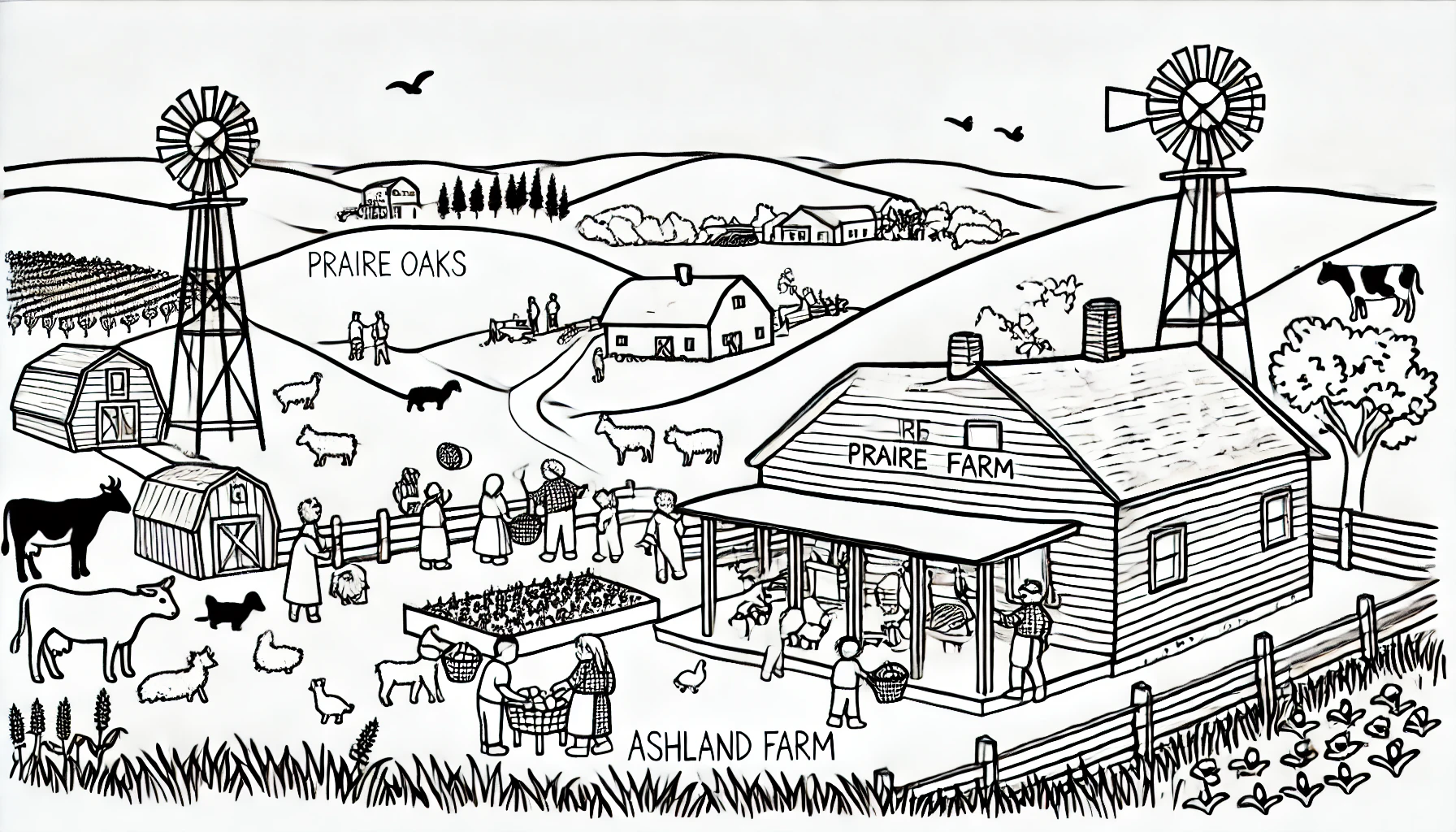Farm to Table Restaurants in Nebraska Cities and Towns

Traveling through Nebraska, one can experience a unique gastronomic phenomenon that highlights the state's agricultural prowess: farm-to-table restaurants. These establishments prioritize using locally sourced, organic ingredients, often from their own farms or nearby producers, to create a distinctive culinary identity. In this context, Nebraska's farm-to-table restaurants have evolved into an integral aspect of the state's culinary scene, forging strong connections between local farmers, chefs, and consumers.
One quintessential example of a farm-to-table restaurant in Nebraska is the Grey Plume, located in the heart of Omaha. This establishment, spearheaded by Chef Clayton Chapman, endeavors to redefine the local food culture by emphasizing house-made cheeses, fresh heirloom vegetables, and free-range meats. Chapman collaborates with regional farmers to obtain an array of seasonal ingredients, striving to create timeless and authentic Nebraska-inspired dishes. The menu often highlights lesser-known cuts of locally sourced beef and heritage pork, serving as a testament to the benefits of sustainable agriculture in Nebraska.
Omaha's proximity to Nebraska's agricultural heartland allows chefs to thrive in their pursuit of locally sourced ingredients. As the seasons change, the cuisine shifts to reflect the specific harvests, which makes dining in Omaha's farm-to-table restaurants an immersive experience for tourists. Visiting the nearby Old Market district allows visitors to discover the original Henry Doorly Market, an emblematic hub where Nebraskan farmers have gathered for decades to showcase their fresh produce. Similar markets have emerged across the state, facilitating relationships between local farmers, chefs, and the local community.
In rural Nebraska, where agricultural traditions run deep, the sentiment behind farm-to-table restaurants resonates differently, imbuing the dining experience with a sense of cultural preservation. One notable example is the FourWay Restaurant, situated at 27th Street and Iowa Avenue in Norfolk. This family-owned eatery showcases an aspect of Nebraska's farm culture that is not typically associated with the state's food scene: farm-fresh Mexican cuisine. Brothers Daniel and Guillermo 'Memo' Hernandez, veterans of their own family's well-known farm-to-table Mexican restaurant, founded FourWay in an effort to acknowledge and honor their family's agricultural heritage.
Fifteen minutes outside Kearney lies the Cattleman's Ball farm venue, where farm-to-table food demonstrations often take place. Drawing food enthusiasts from across the region, the Cattleman's Ball focuses on highlighting local pork and beef, celebrating Nebraska's contribution to American gastronomy. Visitors to the event can partake in barbecue meals produced under the careful guidance of local master chefs. Furthermore, participating in their locally-sourced menu gives food enthusiasts a better understanding of Nebraska's livestock agriculture.
Nebraska's pursuit of a balanced agriculture ecosystem not only transcends conventional notions but highlights the collaborative vision inherent to farm-to-table establishments. For those who love it, this eclectic culinary attitude inspires a deep appreciation of Nebraska's farm culture. Among locals, food producers, and travelers alike, this shared interest undoubtedly has a powerful impact on agricultural practices and the local dining experience.
By shifting eating habits and economic initiatives toward supporting local food networks, these entrepreneurs not only create a deeper appreciation of regional farm-to-table culinary traditions, but also a nuanced relationship with farmers who, despite their busy schedules, become aware of the enduring value their products contribute to town life.
One quintessential example of a farm-to-table restaurant in Nebraska is the Grey Plume, located in the heart of Omaha. This establishment, spearheaded by Chef Clayton Chapman, endeavors to redefine the local food culture by emphasizing house-made cheeses, fresh heirloom vegetables, and free-range meats. Chapman collaborates with regional farmers to obtain an array of seasonal ingredients, striving to create timeless and authentic Nebraska-inspired dishes. The menu often highlights lesser-known cuts of locally sourced beef and heritage pork, serving as a testament to the benefits of sustainable agriculture in Nebraska.
Omaha's proximity to Nebraska's agricultural heartland allows chefs to thrive in their pursuit of locally sourced ingredients. As the seasons change, the cuisine shifts to reflect the specific harvests, which makes dining in Omaha's farm-to-table restaurants an immersive experience for tourists. Visiting the nearby Old Market district allows visitors to discover the original Henry Doorly Market, an emblematic hub where Nebraskan farmers have gathered for decades to showcase their fresh produce. Similar markets have emerged across the state, facilitating relationships between local farmers, chefs, and the local community.
In rural Nebraska, where agricultural traditions run deep, the sentiment behind farm-to-table restaurants resonates differently, imbuing the dining experience with a sense of cultural preservation. One notable example is the FourWay Restaurant, situated at 27th Street and Iowa Avenue in Norfolk. This family-owned eatery showcases an aspect of Nebraska's farm culture that is not typically associated with the state's food scene: farm-fresh Mexican cuisine. Brothers Daniel and Guillermo 'Memo' Hernandez, veterans of their own family's well-known farm-to-table Mexican restaurant, founded FourWay in an effort to acknowledge and honor their family's agricultural heritage.
Fifteen minutes outside Kearney lies the Cattleman's Ball farm venue, where farm-to-table food demonstrations often take place. Drawing food enthusiasts from across the region, the Cattleman's Ball focuses on highlighting local pork and beef, celebrating Nebraska's contribution to American gastronomy. Visitors to the event can partake in barbecue meals produced under the careful guidance of local master chefs. Furthermore, participating in their locally-sourced menu gives food enthusiasts a better understanding of Nebraska's livestock agriculture.
Nebraska's pursuit of a balanced agriculture ecosystem not only transcends conventional notions but highlights the collaborative vision inherent to farm-to-table establishments. For those who love it, this eclectic culinary attitude inspires a deep appreciation of Nebraska's farm culture. Among locals, food producers, and travelers alike, this shared interest undoubtedly has a powerful impact on agricultural practices and the local dining experience.
By shifting eating habits and economic initiatives toward supporting local food networks, these entrepreneurs not only create a deeper appreciation of regional farm-to-table culinary traditions, but also a nuanced relationship with farmers who, despite their busy schedules, become aware of the enduring value their products contribute to town life.
